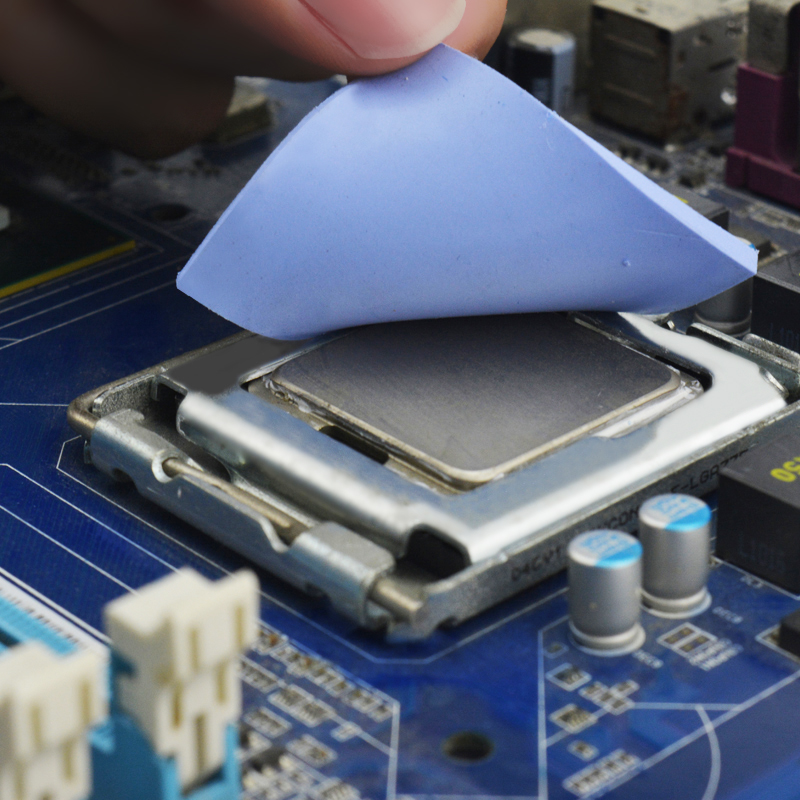Thermally conductive silicone, often also called thermally conductive RTV adhesive, can be cured at room temperature and has certain adhesive properties. Thermally conductive silicone is a kind of silicone rubber, which is a one-component liquid rubber vulcanized at room temperature. Once exposed to air, the silane monomer in it condenses and forms a network structure, the system cross-linked, cannot be melted and dissolved, has elasticity, into a rubbery state, while bonding objects. And once cured, it is difficult to separate the bonded objects.

Thermally conductive silicone grease is a kind of thermally conductive medium, which is an ester-like polymer composite material synthesized by adding various auxiliary materials with silicone (polysiloxane polymer) as the basic raw material through a special process. It is a kind of white or gray viscous object of thermal conductivity and insulation, which has a certain viscosity and no obvious granularity. It is non-toxic, tasteless, non-corrosive, with stable chemical and physical properties and has excellent thermal conductivity, electrical insulation, high temperature resistance, aging resistance and waterproof characteristics. Usually, thermally conductive silicone grease is insoluble in water, not easily oxidized, and also has certain lubricity and electrical insulation properties.
Advantages and disadvantages of thermally conductive silicone grease and thermally conductive silicone film.
1、Thermal conductive silicone grease.
Advantages of thermal conductive silicone grease: good adaptability, suitable for various shapes of aluminum substrates, good thermal conductivity, and will not produce corners.
Disadvantages of thermal conductive silicone grease: large area of the coating operation is not convenient to use in the long-term high temperature state, low light transmission rate.
2、Thermally conductive silicone film.
Advantages of thermal conductive silicone film: soft material, good compression performance, adjustable range of thickness, suitable for filling cavities, both sides have adhesion, operability and maintenance.
Disadvantages of heat-conducting silicone film: When the heat-conducting area is large, the material deformation leads to size deviation, can not be aligned, and then affect the thermal conductivity effect, the use of the material should pay attention to the training of workers, or the use of certain tools to reduce the processing of products resulting in problems.
